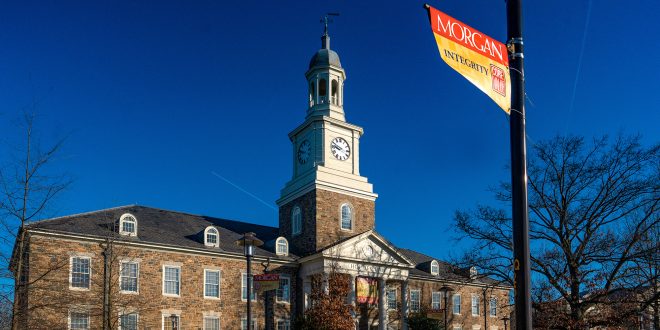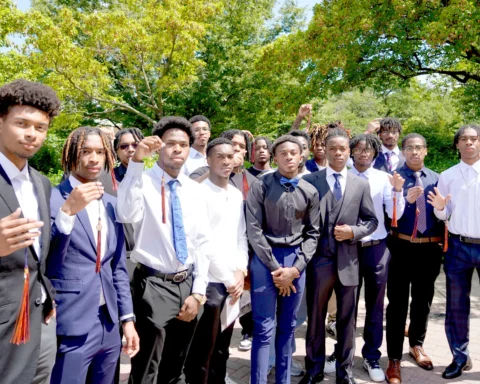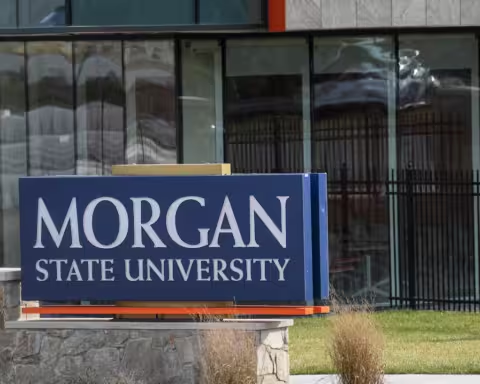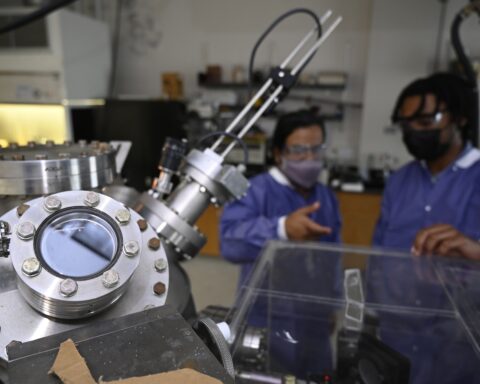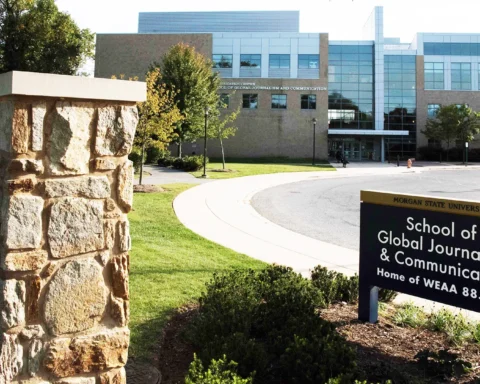By Zshekinah Collier
The reality for many Baltimore City students is to experience violence, which often leads to PTSD and students struggling academically, according to a panel of education experts at Morgan State University on Monday. Experts said it’s important for educators to step in and shared some best practices during a recent event.
As part of its annual Leading Minds Symposium, The Baltimore Curriculum Project, a non-profit that researches education strategies, hosted a panel of experts on Monday afternoon to discuss how educators and school systems must acknowledge how trauma affects learning.
In the last five years, 208 children died in Baltimore City, according to the city’s 2021 Child Fatality Report. Many of those deaths were children who died as the result of gun violence, according to the report.
“We can’t change the communities that they live in, but we can certainly help them cope with it better,” said Lorece Edwards, a panelist and Morgan State professor for the school of Community Health & Policy.
A student spoke during the event.
E’ryan Benefield, an eighth grade student attending City Springs Elementary/Middle School in Baltimore City Public Schools, told the panel audience school is supposed to be a place to learn and feel safe.
“The presence of violence in my school impacts me as a scholar. It kind of makes me feel stressed and out of place,” Benefield said.
Anthony Patterson, who is the director of equity and anti-racism for City Springs Elementary/ Middle School in Baltimore’s Perkins Homes neighborhood, told educators to, “control what you can control.”
Patterson said that connecting with students and fostering a classroom environment that teaches healthy conflict resolution skills can help combat violence.
Errika Bridgeford, co-founder of Baltimore Peace Movement and executive director of Baltimore Community Mediation Center, said more educators need to be trained in conflict resolution and in de-escalation but it’s often a challenge to collaborate with schools.
“Trying to get into schools is just as difficult as trying to get into jails to do this work,” Bridgeford said.
During the panel, Shantay Jackson, director of the Mayor’s Office of Neighborhood Safety and Engagement, otherwise known as MONSE, said 50% of violence in schools is driven by retaliation.
Jackson said that’s why it’s necessary to have school-based violence intervention programs give students the skills to disrupt and prevent violence.
“It’s been our priority to make sure that students have the tools that they need to resolve the conflicts that they have, because naturally, you’re going to have conflicts,” Jackson said.
This school year the mayor’s office, is partnering with Digital Harbor High School, Mergenthaler Technical High School, and Carver Vocational Technical High School in Baltimore City, to pilot the new intervention program to strengthen students’ problem-solving and conflict-management skills.
Jackson said the program will help, “make sure that those conflicts don’t translate into physical or emotional harm.”
It’s about teaching students how to cope with adversity, she said.
“[Those are] life skills that we’re looking to teach our young people that’s going to carry them through their life journey,” she said.

